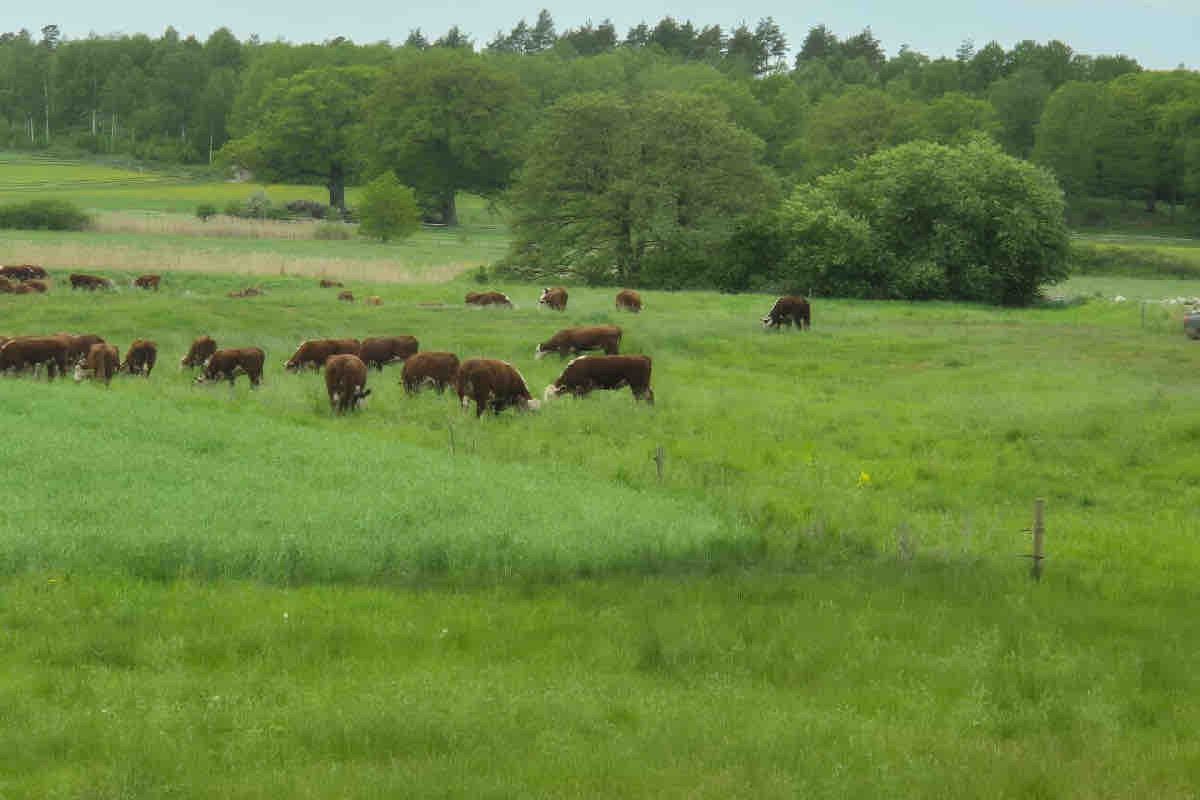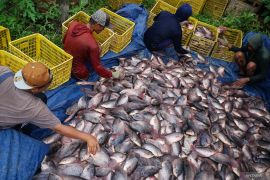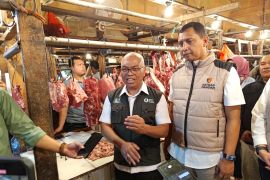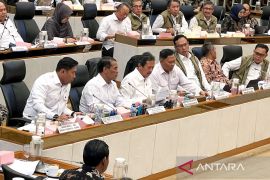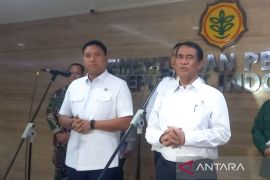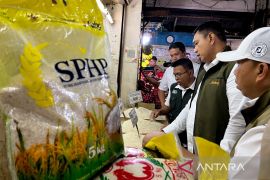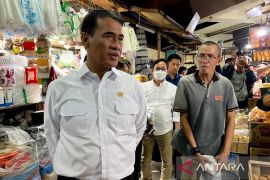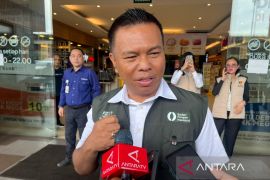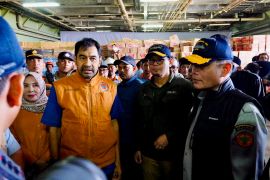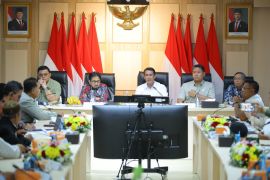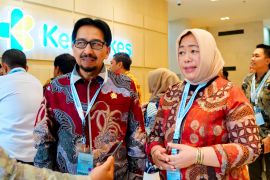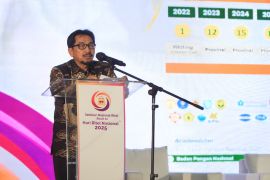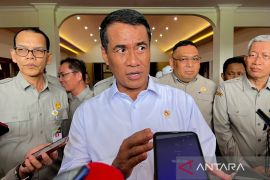The National Food Agency (Bapanas) and the House of Representatives' Commission IV (agriculture sector) undertook a trip to Sweden to learn about implementing an integrated food provision system.
Bapanas Head Arief Prasetyo and DPR legislators, on May 20, visited an integrated livestock and plantation area in Bona-Munsö, Stockholm, which has been producing food materials since the era of Vikings.
"This (food provision system) is worth noting and emulating," Prasetyo noted in Bapanas' statement received here on Saturday (May 25).
During the visit, he said the Indonesian delegation found out that the management of the area is breeding 400 cattle on 800 hectares of land using the free ranch approach, allowing the livestock to wander freely on pasture.
The official then emphasized the need for Indonesia to take all viable measures for solidifying its national food stocks, considering that the country's production capacity of beef and buffalo beef this year stands at 459,000 tons, lagging behind the projected national consumption of 819,000 tons.
On that, he said that the Bapanas encouraged the Agriculture Ministry to follow in the footsteps of Sweden in managing the livestock system by initially conducting research to ensure the compatibility of the Swedish system with Indonesia's conditions.
"We learned that 70 percent of Swedish farmers are still using chemical fertilizers. However, the trend has started to shift to the use of organic fertilizers. This is the future of agriculture. Therefore, I support the Agriculture Ministry to emulate this movement," he stated.
Prasetyo then reiterated President Joko Widodo's emphasis on the need for multi-sector collaboration to integrate the national food ecosystem.
"Mr. President Joko Widodo has said that the national food ecosystem should be integrated, from its upstream and downstream sectors. Therefore, we need to continue pursuing the establishment of collaboration among stakeholders," he noted.
Adam Reuterskiöld, a Swedish lawmaker, explained that the integrated livestock and plantation area has been applying a more sustainable food production approach that enables it to produce not only quality beef, but also milk, fodder, and barley.
Related news: Minister calls for monitoring of subsidized fertilizer distribution
Related news: Indonesia, Sweden ink waste-conversion cooperation agreement
Bapanas Head Arief Prasetyo and DPR legislators, on May 20, visited an integrated livestock and plantation area in Bona-Munsö, Stockholm, which has been producing food materials since the era of Vikings.
"This (food provision system) is worth noting and emulating," Prasetyo noted in Bapanas' statement received here on Saturday (May 25).
During the visit, he said the Indonesian delegation found out that the management of the area is breeding 400 cattle on 800 hectares of land using the free ranch approach, allowing the livestock to wander freely on pasture.
The official then emphasized the need for Indonesia to take all viable measures for solidifying its national food stocks, considering that the country's production capacity of beef and buffalo beef this year stands at 459,000 tons, lagging behind the projected national consumption of 819,000 tons.
On that, he said that the Bapanas encouraged the Agriculture Ministry to follow in the footsteps of Sweden in managing the livestock system by initially conducting research to ensure the compatibility of the Swedish system with Indonesia's conditions.
"We learned that 70 percent of Swedish farmers are still using chemical fertilizers. However, the trend has started to shift to the use of organic fertilizers. This is the future of agriculture. Therefore, I support the Agriculture Ministry to emulate this movement," he stated.
Prasetyo then reiterated President Joko Widodo's emphasis on the need for multi-sector collaboration to integrate the national food ecosystem.
"Mr. President Joko Widodo has said that the national food ecosystem should be integrated, from its upstream and downstream sectors. Therefore, we need to continue pursuing the establishment of collaboration among stakeholders," he noted.
Adam Reuterskiöld, a Swedish lawmaker, explained that the integrated livestock and plantation area has been applying a more sustainable food production approach that enables it to produce not only quality beef, but also milk, fodder, and barley.
Related news: Minister calls for monitoring of subsidized fertilizer distribution
Related news: Indonesia, Sweden ink waste-conversion cooperation agreement
Translator: Muhammad H, Tegar Nurfitra
Editor: Tia Mutiasari
Copyright © ANTARA 2024
